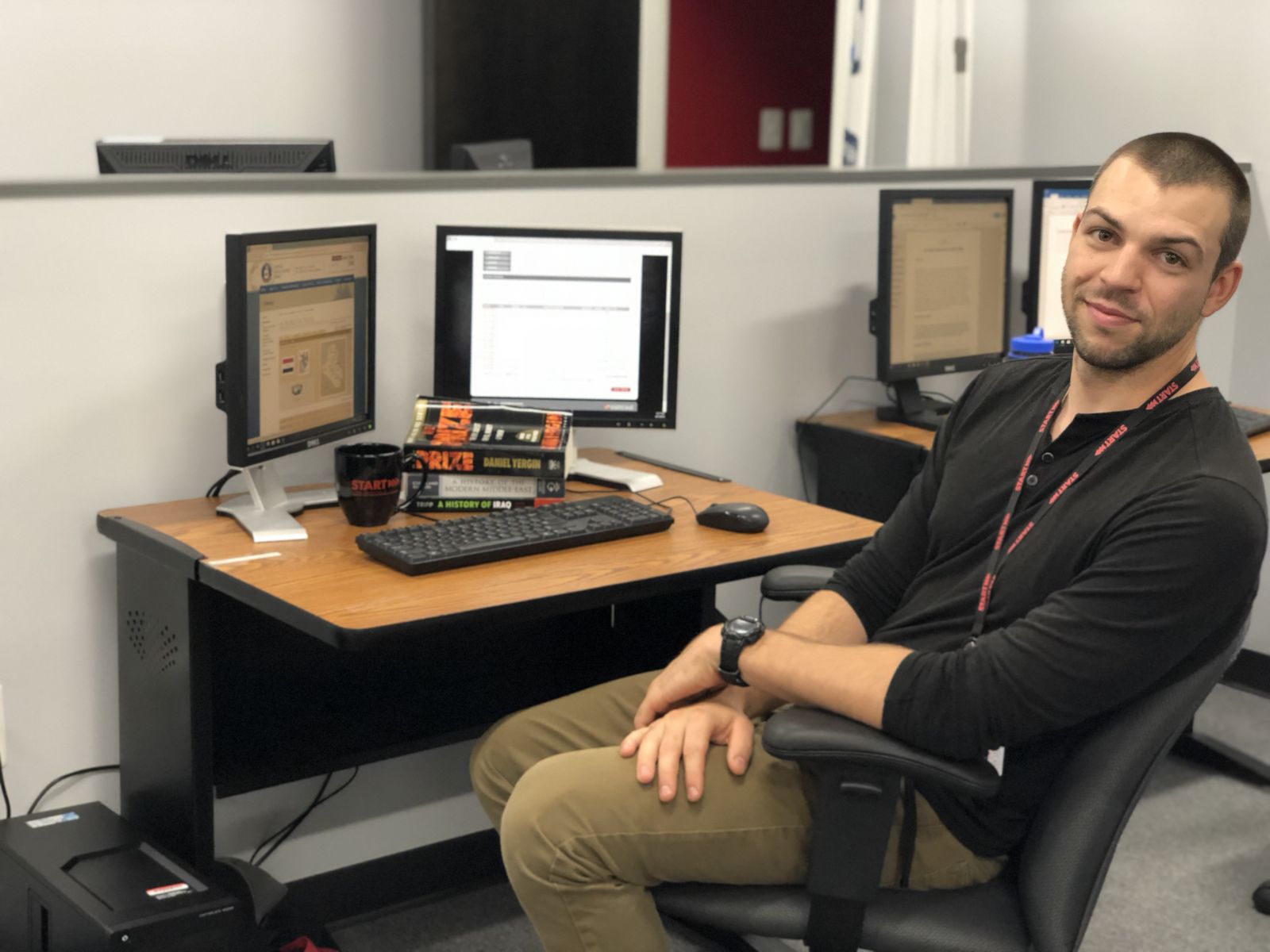After four years fighting more than 50 forest fires in nine different states, Adrian Bushman is ready to fight a new hazard.

Armed with an intimate knowledge of on-the-ground emergency response, Bushman joined START’s internship program this fall. As a State-START intern, he creates training materials for the U.S. Department of State to assist the department in identifying terrorist organizations across the globe.
On the surface, the work of his internship is a far cry from his days spent as part of a hot shot crew. The hot shot crew is a 20-person, specialized crew that works with helicopters, smoke jumpers and others. They stay in the mountains for two-week intervals with two-day breaks until the fires are completely extinguished.
Bushman said the crews are constantly training and learning new ways to fight fires. He even started a library in the truck they worked out of to allow team members to research and learn more.
Bushman said he has found similarities when he looks at the response side of the hazard equation.
“The incident command system (ICS) that emergency responders use to respond to terrorism events and natural disasters was inspired and built with forest fire response in mind,” Bushman said.
According to the United States Department of Agriculture, the ICS was developed in the 1970s following a series of wildfires in California.
He said his knowledge and use of these systems have helped him apply the rules and perspectives of emergency response to his work at START.
Additionally, he thinks the guideline he follows to successfully fight fires is appropriate to think of in the fight against terrorism: “Focus on what you’re doing, but also know what’s going on around you. Things don’t happen in a vacuum.”
Bushman began learning Arabic last year to supplement his educational experience. It has allowed him to develop a cultural insight for the Middle East. A second year master’s student studying Middle Eastern history at Georgetown University, Bushman earned his undergraduate degree in ancient history at the University of Utah in 2013. During his time at the University of Utah, he spent one year studying abroad in Germany. He took classes about Ancient Rome and Ancient Persia. The Ancient Persia class is when he first became interested in the Middle East.
“I hope to use the skills I gain from START, coupled with the cultural and historical insights from my master’s degree, to better understand some of the problems facing our friends in the Middle East,” he said.
